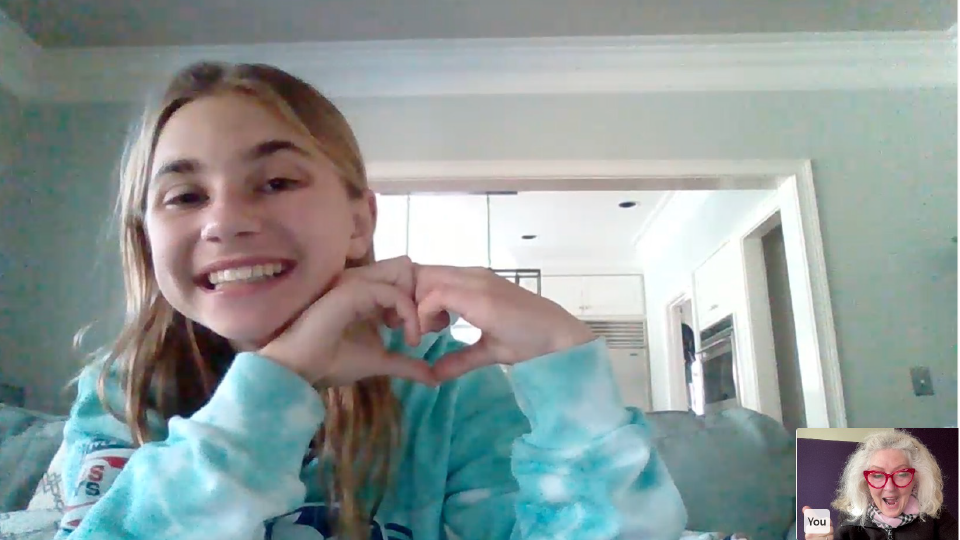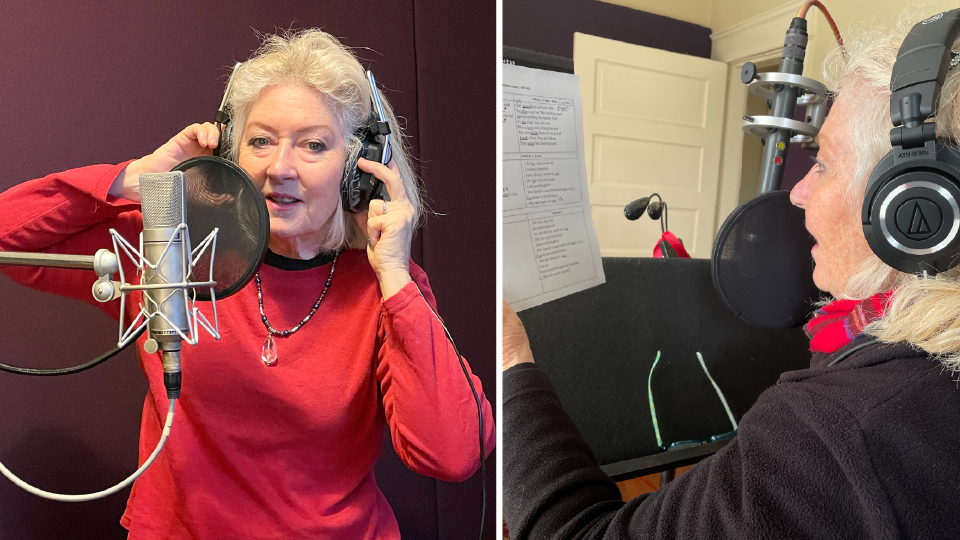Take a deeper dive with our articles
Take a look around or search our articles and get the information you need. New articles are added regularly.
K-Pop Demon Hunters, Wicked, and Vocal Range
The movie musical K-Pop Demon Hunters has exploded in popularity over the last few months. The song “Golden” hit number one on the Billboard Hot 100 chart and, as of the time of writing, has stayed in the top 10 for the past 18 weeks. The lead character, Rumi, even unseated Elsa from Frozen as the most popular Halloween costume in the U.S. The soundtrack is catchy and danceable, combining the tight lyricism of musical theatre with the best of K-pop songwriting, production, and performance.
As “Golden” has taken over TikTok, YouTube, and mainstream radio, attempts at covers have also flooded social media platforms, often with questionable performances. Maybe you yourself have sung along to the soundtrack, only to mumble your way through the chorus, unable to hit the high notes. This isn’t because you or these YouTube singers aren’t skilled vocalists. It’s all because of the range.
Great Questions and Good Intentions for a Brilliant New Year
As the year winds down, many of us are looking back at the past year and forward to the next. Even major corporations take the time to reflect, putting out “rewinds” and “wrap-ups.” As singers, speakers, and general voice users, taking the time to look back at your successes and plan your future goals can help take your voice to the next level.
Breaking The Psych-Out Cycle
For many of us, a traumatic experience when we’re younger can grow into a lifelong phobia. For example, you might develop a fear of dogs after a childhood dog bite. Sometimes the negative experience is more subtle but just as impactful. Maybe you received a harsh critique from a teacher, or an unkind comment from a trusted adult, or cruel laughter from a peer, and internalized it; years or decades later, that internalized negative experience has (often wrongly) shaped your understanding of the world - and yourself.
The belief that you can’t sing is a self-fulfilling prophecy. The physical tension and shortness of breath that come with anxiety can make singing almost impossible. In this article, we’re breaking down the Psych-Out Cycle to help you start loving your voice.
From Campfires to Choirs: An Intro to Group Singing
It happens in cars, in classrooms, in bars, and in churches. It happens around campfires, kitchen tables, and microphones. Group singing happens just about anywhere two or more people gather. Joining with friends, family, or strangers in song can be an incredibly powerful experience, so much so that it even alters your brain chemistry. Singing with others doesn’t have to be complicated, and the benefits of group singing go far beyond just personal enjoyment.
18 Perfect Songs for Your First Karaoke Night
The saying “You never get a second chance at a first impression” applies to more than just how you present yourself to the world. Your first experience with a new hobby can be the deciding factor in whether it becomes a one-off misadventure or a lifelong passion. Nothing can make or break a karaoke night like your song choice. Whether you’re finally taking the mic after months of practice or joining friends for a spontaneous night of fun, you’ll want to choose the right song to rock the night.
Nashville’s Best and Most Popular Karaoke Bars
Nashville is called Music City for a reason. It’s a major hub of the music industry and an amazing place to catch a live show. It’s also a great place to sing karaoke. Whether you’re visiting from out of town or a local looking to pick up a new hobby, we have a list of some of the best and most popular karaoke spots throughout the city.
Lip-Syncing and AutoTune and Editing, Oh My!
As a society, we love to speculate about celebrities, including singers and musicians. Accusations of lip-syncing and auto-tuning are levied with the same contempt as speculation about plastic surgeries and cheating. The implication is often that the singer is a faker, relying on prerecorded tracks to mime having talent. In the summer of 2024, the internet went wild over lip-syncing at the Olympic ceremony by artists like Lady Gaga and Celine Dion.
There are ethical issues with using tools like lip-syncing and autotune, but they’re far from the villainous gadgets they’re made out to be. In fact, they have a place in many talented pop singers’ tool belts.
Singing With (or Without) an Accent
Whether you’re from the other side of the country or the other side of the world, chances are you have an accent. Some of us lean into our accents while others do our best to neutralize them. As singers, we’re faced with the choice of whether or not to sing with our accent origin every time we take the mic. How do we decide if and when to sing with (or without) our accents? And, how do we even sing without an accent in the first place?
A Brief History of Karaoke: From Tokyo to Turku
Over the last 53 years, karaoke has become a globally beloved pastime. Every night, singers take the stage in karaoke bars from Tokyo to Turku to Toronto. How did this hobby with a decidedly Japanese name become a worldwide hit? The answer is more complicated than you might guess.
How To Find the Right Singing Teacher for Your Kid
When you imagine childhood music lessons or think back on your own experience, you might conjure visions of tedious scales and exercises. So many adults have a complicated relationship with our early experiences with music and learning. A bad teacher can kill a budding interest before it has a chance to bloom. However, lessons with the right instructor can be a chance for students to discover a lifelong passion, learn a new skill, or build lasting friendships. Unfortunately, finding the right voice teacher for your child is rarely as easy as calling the top-rated coach on Yelp. In this article, we go into what to look for in a great vocal instructor to support your child’s musical journey.
How to Love Your Voice
When I was born, I made sounds.
From the moment I took my first breath as a newborn, I used my voice. Like any typical baby coming out of the cozy, comfort zone into the strange new world that would become my new home, I would no doubt have cried.
Was it a polite, petite cry?
Not likely. The first cry of the newborn has been described as “vociferous, shrill, and piercing.” Not at all a pleasant sound, but it sure is a powerful form of communication
Why Listening to Your Voice Makes You Cringe
Nothing induces involuntary cringing quite like hearing your voice played back at you. Despite this, recording yourself (and listening back) is one of the best tools a vocalist can use to improve their singing and an essential skill for professionals. So how do you get past the reflexive cringe when you hear yourself recorded? And why is it so dang uncomfortable in the first place?












